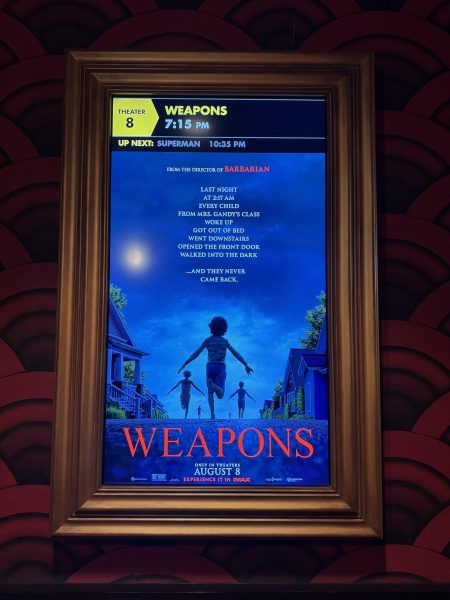Space Jam: Chris Pratt, Jennifer Lawrence at odds in ‘Passengers’
Hollywood just can’t let go of problematic and toxic romantic relationships. The “highly anticipated” film, “Passengers,” premiered on Dec. 21 and proceeded to receive terrible reviews from its audience.
One can only wonder why. It stars two of Hollywood’s “best” actors, Chris Pratt and Jennifer Lawrence and contains space travel and intense action sequences. But once social media caught wind of the film’s plot, they began to forget about the film altogether. Why? The romantic plot of the film is a product of white male entitlement and the normalization of rape culture.
Pratt’s character, Jim Preston, is the “hero” of the story who is awakened from cryogenic sleep and discovers he has woken up 90 years too early. He lives alone on the ship for months, knowing he is bound to die, and begins to go crazy from the lack of human interaction. Then, as he is looking around the sleeping chambers, he notices Lawrence’s character, Aurora.
He actually watches her while she sleeps along with a video profiling her.
He begins contemplating whether or not he should wake her up. He knows damn well that he would be sentencing her to death but then thinks “YOLO” to himself and wakes her up.
Preston lies to her about why she’s awake and insinuates they should be together, relentlessly pursuing her until she agrees.
After a year, he tells her the truth, which of course makes her angry and she gives him the silent treatment, instead of, you know, killing him. There’s some actual plot for five minutes, then back to their toxic relationship.
Jim and Aurora actually find a way to get Aurora back in her pod, but instead, she tells him she wants to stay because she loves him.
If no one could see the problem with this movie, even after reading my explanation of the plot, I’ll outline the main examples of white male entitlement and rape culture. White male entitlement comes into play when Jim first sees Aurora and immediately thinks to himself, “I have to have her.”
Jim takes one look at this woman and thinks he has the right to basically kill Aurora and pursue her despite the fact she is coping with her inevitable death.
The rape culture examples go hand in hand with this, and both are hidden everywhere in movies and television. The act of objectifying women is a part of rape culture and has become so normalized that we are blind to it. In cheesy high school films when the dorky teen protagonist says, “That’s Marybeth Smith. She’s the girl of my dreams. I’m in love with her, but she’s dating that jerk Chad Thompson, the captain of the football team.”
All of that translates to : “That’s Marybeth Smith, I think about her every night before I go to bed in a creepy, unhealthy way. She’s probably in a very happy relationship with Chad Thompson, but she can’t be happy with anyone but me. I would do literally anything to make her mine and only mine.”
We’ve been trained, as a society, to cheer for the underdog, no matter how creepy his intentions truly are; We sympathize for him rather than the poor girl being avidly stalked by him.
Had “Passengers” been written in a way that would have portrayed such a toxic relationship as unhealthy, maybe the film would have been better. Instead of having the two protagonists fall in love, Aurora could have run away from Jim once she realized the truth.
She could have fought and hid from him — in the end, killing him after being hunted, making the film a unique scifi horror film which would have managed to expose these two societal problems to its audience. Instead, the film decided to promote the unhealthy idea that women are only objects to be won by a man who “deserves” them, and that no matter what, the man will always get his way.






